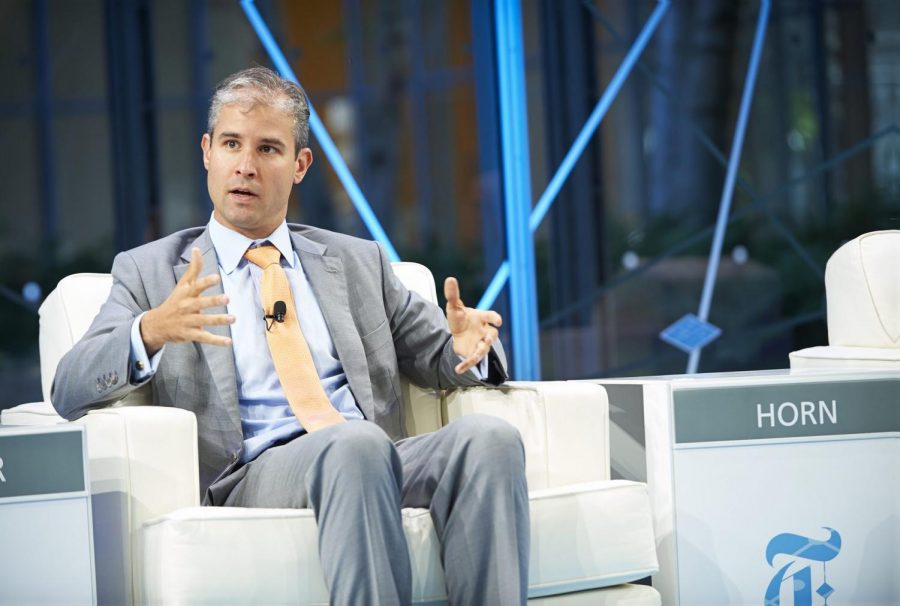“The College Experience” is Indispensable
The increasing failure of American universities requires an analyzation of the classic college experience, and whether it is truly worth the cost.
by Taylor Herzlich
“The college experience.” It is a phrase peppered throughout millions of American conversations. These three words encompass a myriad of expectations, ranging from picturesque sprawling campuses to close-knit groups of lifelong friends and from roommate horror stories to inspirational professors.
The glorification of this time-honored tradition has been monopolized by the media and, subsequently, hounded into our daily lives.
We teared up as Rory ventured off to Yale and as Andy waved one final goodbye to Woody, falling victim to the practice we’ve been raised to believe is integral to achieving the golden-haloed American Dream.
What is to come of society if this were all to disappear? Michael Horn, an educational expert at Harvard University, has predicted the upcoming demise of traditional college campuses, stating that 25% will “fail” in one way or another in the next 20 years.
The price, both fiscally and otherwise, to attend these ivy-covered institutions continues to rise for hopeful students along with maintenance expenses for the buildings themselves.
Of course, with the rapid implementation of technology into virtually every aspect of our modern-day lives, the simple solution is to start turning towards online schools. In some cases quicker and cheaper, online forms of higher education seem like a valid alternative.
Herein lies the problem: Online college remains merely an alternative to the classic, idealized experience spoon-fed to us from the time we were old enough to be propped in front of a television.
This is not an attempt to discredit the work that goes along with achieving an online degree, but instead an effort to focus on the formative four years provided to young adults attending university.
The idea of college encompasses a lot more than just education or, at least, more than the kind you receive in a classroom. It embodies life lessons and an illusion of the “real world” in an attempt to push children from their parents’ homes and into a new environment while still freeing them from responsibilities that come with living by oneself.
The knowledge that comes from moving out and venturing to a university is priceless (not literally, or Financial Aid offices would cease to exist) and impossible to replicate by taking mobile courses.
Frankly, attending a traditional American college ripe with brick buildings and stately professors isn’t an option for everyone, whether it be for monetary or personal reasons.
However, the answer is not to disregard the benefits of American universities and move to an alternative, but to think of ways to increase the accessibility of a modern day education.
America shouldn’t have to sacrifice the benefits of enrolling in university because the cost is too high.
Universities need to start adjusting their inflated costs to become more obtainable or risk the chance of being overtaken by affordable, seemingly efficient online schools.
Tuition is certainly necessary, and funds need to be allocated toward professors’ payrolls or better living conditions for students, but the amount of money going toward the growing administrations of college campuses seems in need of a minimization.
Though I’ve only been engaging in college life for about two weeks, and the experience may not have been the smoothest transition of my life, I’m ready to praise the challenges for what they’ve taught me.
Attending university can seem extremely isolating — being physically removed from your family, friends and hometown — and though it isn’t always a pleasant experience at first, it’s certainly taught me more about myself than a class could teach me while I remain in my comfort zone.
I’ve had to face my values and morals and reach decisions without wondering what my family or friends’ input would be; I’ve become more comfortable with myself as a result.
Although technology is incredible in its ability to allow us to take courses online, it cannot change our perspectives in the same way that life on a college campus can.
It is worthwhile to be exposed to different kinds of people and places, something not very common throughout many people’s primary education. I moved a meager hour and a half drive away from home, and yet I’ve experienced the biggest culture shock of my life.
While college alternatives have the strength to teach society’s youth the intricacies of calculus and philosophy, they don’t have the capability to give bright-eyed students a taste of all that the future has to offer them.
Taylor Herzlich, GSB ’23, is a business administration major from Mt. Sinai, NY.

Taylor Herzlich is a senior at Fordham College at Rose Hill. She is majoring in journalism with a minor in English. Taylor started writing for the Ram...











































































































































































































PATRICIA Markin • Oct 2, 2019 at 8:15 am
Great article Taylor!
Nancy Ercolano • Oct 1, 2019 at 9:24 pm
I agree with the author that attending a college away from home not only forces a young adult to make decisions on their own but also forces them to interact with others in a way they most likely haven’t had to while living in the comfort of their home. I am of an older generation and one observation I have made of the younger generation is social skills are very often lacking due to technology who is unfortunate. On line schools are wonderful but should not exist at the expense of campuses. Excellent article.